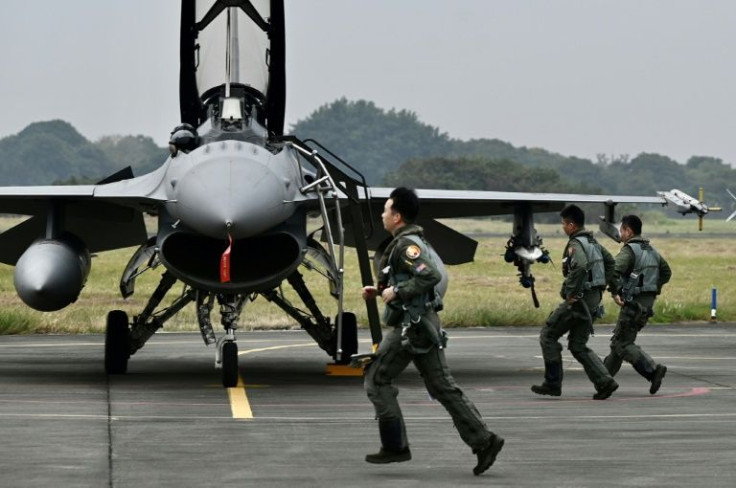China Warns US That Taiwan Dispute Can 'Spark Military Conflict' Between Superpowers
China’s ambassador to the United States issued an unusually blunt warning that any attempt by Taiwan to achieve independence will lead to war between the two superpowers.
In a rare interview on NPR on Friday, China’s U.S ambassador Qin Gang shared his country’s views on a litany of topics of concern that have bedeviled the relationship between the two countries. Under the administrations of current President Joe Biden and his predecessor Donald Trump, Washington has adopted a tougher line with China that has placed competition at the center of American foreign policy.
Taiwan has become an increasingly sharp point of contention between the United States and China. The island state has never formally declared independence, but it has remained outside the control of mainland Chinese authorities since 1949. Close defense ties have developed between Taiwan and the United States, drawing China’s ire and inspiring fears of a flare-up as the U.S is preoccupied with negotiations over Ukraine.
In the interview, Qin accused Taiwan of "walking down the road toward independence" and accused the United States of playing a "Taiwan card" against it through their growing amount of ties. Asked whether Americans should be worried that China may attack Taiwan, Qin said China would "do our utmost" to achieve a "peaceful reunification". However, he cautioned that China is not ruling out the possibility of military action against Taiwan if it declares independence.
"China will not commit to giving up the un-peaceful means for reunification because this is a deterrent," warned Qin. "The Taiwan issue is the biggest tinderbox between China and the United States."
“If the Taiwanese authorities keep going down the road to independence, it most likely will involve China and the United States in a military conflict,” said the ambassador.

Qin also commented on other sore points in his country’s relations with the United States. On the U.S diplomatic boycott of the upcoming Winter Olympics in Beijing over human rights abuses against the Uyghur minorities of western China, Qin countered that “there is no genocide” taking place.
Qin described the Chinese authorities' actions as justified by counterterrorism concerns and added that Uyghurs were not being held in concentration camps but in "vocational schools". This stands in complete contrast to the findings of international human rights groups, journalists and Western governments who decry China's treatment of this minority.
Qin reaffirmed China’s belief that its relationship with the United States is the single most important one in its own foreign policy. However, he made clear that work must be done to avoid damaging it further.
“Everybody in China, including the Chinese leadership, believe(s) that the United States is one of the most important countries," said Qin. "We must work well at 'don't mess it up.'"
© Copyright IBTimes 2025. All rights reserved.






















